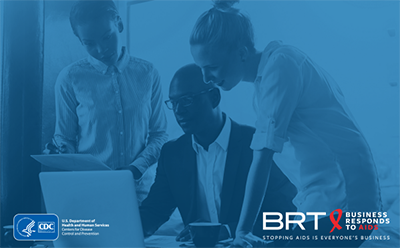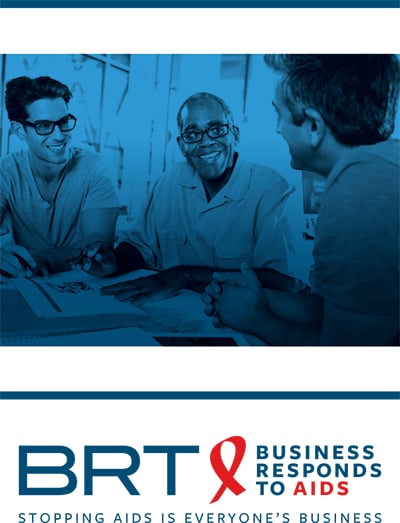Get Resources
BRTA Education and Training Resources
HIV Resources
There are resources available to you in the communities where you work and live—and often within your workplace. Consult your workplace’s human resource staff, health services, legal advisor, or Employee Assistance Program to find out what HIV resources are available. Your workplace may also have a list of local community resources.
CDC-INFO
CDC-INFO operates a toll-free information center open Monday through Friday from 8 a.m. to 8 p.m., Eastern Time (ET) accessible at 1-800-CDC-INFO (232-4636) TTY: 1-888-232-6348 in English and en Español. It is closed overnight, on weekends, and major holidays. CDC-INFO offers anonymous, confidential HIV information to the public. Trained staff members answer questions about HIV in English and Spanish and provide TTY service for the deaf. They also provide referrals to appropriate services, including clinics, hospitals, local hotlines, counseling and testing sites, legal services, health departments, support groups, educational organizations, and service agencies throughout the United States. Callers also can order various publications, posters, and other informational materials.
National Resources
Let’s Stop HIV Together
The Let’s Stop HIV Together campaign (formerly known as Act Against AIDS) includes resources and partnerships aimed at stopping HIV stigma and promoting HIV testing, prevention, and treatment. Let’s Stop HIV Together empowers communities, partners on the ground, and health care providers to reduce stigma among all Americans, prevent HIV among the hardest-hit populations, and help people with HIV stay healthy.
Ending the HIV Epidemic
In 2019, the U.S. Department of Health and Human Services (HHS) launched Ending the HIV Epidemic: A Plan for America. The initiative aims to reduce new HIV infections in the U.S. by 90% by 2030. Ending the HIV Epidemic leverages critical scientific advances in HIV prevention, diagnosis, treatment, and outbreak response. The success of the Ending the HIV Epidemic initiative will be active partnerships with city, county, tribal, and state public health departments, local and regional clinics and healthcare facilities, clinicians, providers of medication-assisted treatment for opioid use disorder, professional associations, advocates, community- and faith-based organizations, and academic and research institutions.
HIV.gov
HIV.gov is a virtual resource that seeks to expand visibility of timely and relevant federal HIV policies, programs, and resources to all Americans. It provides information on HIV, links to federal resources, guidance on how to use new media, and news and events.
HIV Testing Services Locator
Many medical clinics, substance abuse programs, community health centers, and hospitals offer HIV testing. Find a testing site near you.
HIV Treatment and Care
People with HIV should take medicine to treat HIV as soon as possible. HIV medicine is called antiretroviral therapy, or ART. If taken as prescribed, HIV medicine reduces the amount of HIV in the body (viral load) to a very low level, which keeps the immune system working and prevents illness. This is called viral suppression. HIV medicine can even make the viral load so low that a test cannot detect it, known as an undetectable viral load. Getting and keeping an undetectable viral load is the best thing people with HIV can do to stay healthy.
Ready, Set, PrEP.
Pre-exposure prophylaxis (or PrEP) is a way to prevent people who do not have HIV from getting HIV, by taking one pill every day as prescribed. Find out more about PrEP and if PrEP medication is right for you and talk with a healthcare professional. If you do not have a doctor or someone who can prescribe PrEP medication for you, you can use the HIV testing services locator to find a provider. Many people do not know about PrEP medication or how it can help them, and many cannot afford to pay for the medicine. The Ready, Set, PrEP program is designed to reach those individuals who could be helped by taking PrEP medication, but do not have prescription drug coverage. The program provides them with information about the medication as well as the medication itself at no cost for qualified individuals. To find out if you qualify visit Ready, Set, PrEP.
Department of Justice
The Disability Rights Section of the Department of Justice works to achieve equal opportunity for people with disabilities in the United States by implementing the Americans with Disabilities Act (ADA). Through its multi-faceted approach toward achieving compliance with the ADA, this Section works to make this goal a reality. The ADA has information on HIV discrimination.
Department of Labor
The Department of Labor (DOL) Office of Disability Employment Policy is one of several DOL agencies with a focus on improving employment opportunities and outcomes and reducing stigma and discrimination for people with HIV.
State Resources
Most state public health departments have HIV information offices and hotlines, including information on where to get tested for HIV. Most local areas have community HIV prevention and education services. Search for more state resources on the National Prevention Information Network.

